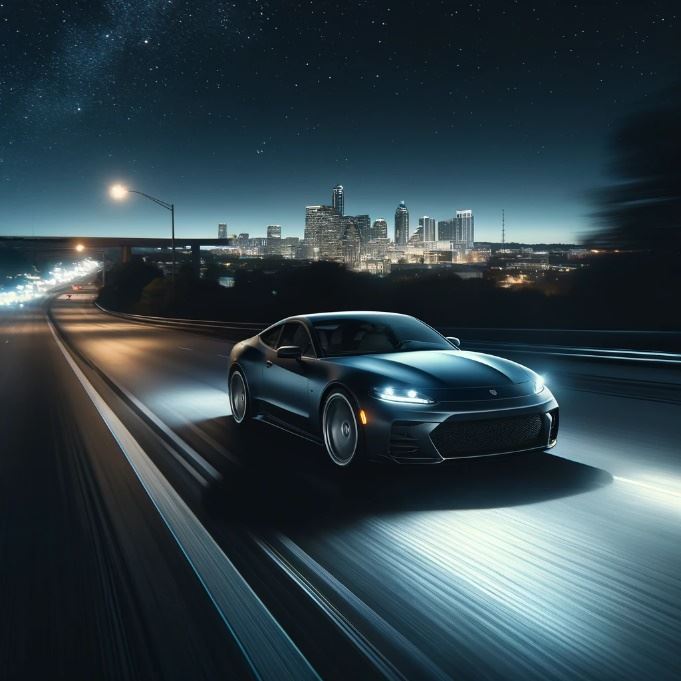
Austin Speeding Offense Lawyers
Speeding in Austin means driving faster than the conditions allow. If you’re found guilty, the consequences can be serious, including hefty fines, points on your driving record, and increased insurance rates. Keep reading to understand more about the penalties for speeding, how you can defend against a speeding ticket, and the role an Austin traffic ticket lawyer can play in your case.
Got a speeding ticket? Call Cofer & Connelly, PLLC at (512) 991-0576 or visit us online. Choose us for a tough defense in Texas. With over 100 years of experience and more than 300 jury trials, we know how to fight for you, reduce penalties, or contest your ticket.
What is Speeding?
Speeding in Texas means driving faster than what's safe for the current road, weather, or traffic conditions, regardless of the posted speed limit. If you're driving, you must adjust your speed to fit the situation. This includes slowing down for things like curves, intersections, hills, or when the road is narrow or winding. You also need to slow down when there are potential dangers like bad weather or lots of traffic, including pedestrians.
To prove you were speeding, a prosecutor must show that you were driving faster than what would be considered safe under the specific conditions at the time. It doesn't matter what the speed limit sign says if the conditions make it unsafe to drive at that speed. For example, if it's raining hard, you might be required to drive slower than the posted limit. If you're caught driving too fast given the situation, that alone can be enough to say you were speeding.
Speed Limits in Austin
In Austin, Texas, speed limits are tailored to enhance road safety and match local conditions. Residential streets typically have a speed limit of 25 MPH if they are less than 36 feet wide. Major streets within the area, bounded by US 183, SH 71, and Loop 1, usually have limits of 35 MPH or lower. Downtown Austin streets are generally set at 25 MPH, with some busy roads like Guadalupe St. and Lavaca St. capped at 30 MPH. Additionally, on highways numbered by the state or the United States outside urban districts, the limit is typically 70 MPH, though it reduces to 60 MPH on other rural highways. Specific conditions, like school zones and beach areas, have further reduced speeds for safety. Austin Transportation reviews and adjusts these limits based on traffic studies and community needs to support the city's goal to eliminate traffic fatalities.
Speeding Hotspots
In Austin, Texas, certain areas are notorious hotspots for speeding violations, often because of their layout and the flow of traffic. Major highways such as Interstate 35, U.S. Highway 183, and the MoPac Expressway (Loop 1) frequently see high numbers of speeding tickets because of their long stretches of road that encourage faster driving. Additionally, the downtown areas have significant enforcement, especially on streets like South Congress Avenue and Lamar Boulevard where limits are strictly enforced because of heavy pedestrian traffic and frequent commercial activity. Speed enforcement is also vigorous on local roads surrounding the University of Texas at Austin, particularly on Guadalupe Street, known locally as “The Drag,” because of the high density of students and other pedestrians. The Austin Transportation Department actively monitors these areas, implementing strategies to reduce speeding.
What Are the Penalties for Speeding?
The fine for speeding in Texas could be as high as $300 depending on how fast you were going and where. If you speed in Travis County, the fines are typically $10 per mile over speed limit plus court costs. However, if you're speeding in a more sensitive area like a school zone or a construction zone with workers present, the fines are generally doubled.
If you're caught speeding more than once, the penalties can get tougher. For repeated offenses, you might face higher fines, and there's a chance you could even lose your driver's license for a while. In some cases, if you're going way over the limit, it could even be considered reckless driving, which is a more serious offense and comes with harsher penalties.
Each case of speeding can differ, so the exact penalty can vary. It's important to know the specific speed limits of the area you're driving in, as well as the enhanced penalties for speeding in designated zones like near schools or construction sites.
Criminal Process for Individuals Facing Speeding Charges
If you're pulled over and ticketed for speeding in Texas, here's what happens next. First, the officer will stop you and explain why you were stopped. They'll ask for your driver's license, registration, and proof of insurance. After checking your documents, the officer will issue a speeding ticket.

You have a few options once you receive a speeding ticket. You can pay the ticket, which is like admitting you were speeding, or you can decide to fight the ticket in municipal court. If you choose to pay, you might also have the option to take a driving safety course to reduce the number of points that go on your driving record.
If you decide to fight the ticket, you'll need to inform the court before the deadline on your ticket. The court will then set a date for your hearing. At the hearing, you can have a speeding ticket attorney argue your case. The officer who issued the ticket will also be there to present their evidence against you.
During the hearing, you'll have the chance to tell your side of the story. You can bring any evidence that supports your case, like photos or witness statements. After both sides have presented, the judge will make a decision. If the judge decides you were not speeding, the ticket will be dismissed, and you won't have to pay the fine or have points added to your record. If the judge decides you were speeding, you'll have to pay the fine and any additional penalties.
Remember, speeding tickets can affect your driving record and your insurance rates. If you get multiple speeding tickets, the penalties can become more severe, including higher fines and even losing your driver's license. So, it's important to consider your options carefully and seek legal advice if you're unsure how to proceed.
Potential Defenses in Speeding Cases
If you are facing a speeding ticket, there are several defenses that might help you challenge the charge effectively. A potential defense revolves around the accuracy of the device used to measure your speed. Questions can be raised about whether the radar, LIDAR, or other speed-measuring equipment was calibrated correctly and operated properly at the time of your alleged offense. If there are doubts about the reliability of the equipment, this can be a strong point in your defense.
Additionally, it's important to examine the clarity and visibility of speed limit signs along the road where you were cited. If the signs were not visible or were missing, you could argue that you were unaware of the speed limit. Moreover, you can also challenge the officer’s perception and positioning when determining your speed, especially in situations where manual tracking was involved.
Another common defense is demonstrating that the speed you were driving was safe under the circumstances present at the time. This involves showing that given the road, traffic, and weather conditions, your driving speed was reasonable. This defense is applicable to situations where you were driving at the speed limit but still received a ticket.
How a Traffic Ticket Attorney Helps in Speeding Cases
A traffic ticket lawyer plays a crucial role when you're charged with speeding. Initially, your lawyer will review all the evidence presented against you, such as the method used to measure your speed and the conditions under which the citation was issued. They'll help you understand the legal implications of your charge and outline your options moving forward. In court, your lawyer acts as your representative, articulating your defense and challenging any weak points in the prosecution’s case.
Behind the scenes, your lawyer negotiates with the prosecutor, aiming to reduce your charges or the penalties. This might include arguing for lower fines, fewer points on your driving record, or attending a driving course in exchange for dismissing the ticket. They’ll make sure your rights are protected throughout the legal process and can enhance your chances of a favorable outcome.
Frequently Asked Questions
How is a speeding ticket issued? An officer will stop you if they believe you're speeding, check your documents, and then issue a ticket.
Can I challenge a speeding ticket in Austin? Yes, you can either pay the fine or contest the ticket in court.
What are the penalties for speeding in Texas? Fines vary, with higher penalties in sensitive zones like school areas.
Does a speeding ticket affect my driving record? Yes, it can add points to your record and increase insurance rates.
Are speed limits the same throughout Austin? No, they vary based on road type and area.
What happens if I get multiple speeding tickets? Penalties increase, potentially including license suspension.
Can a lawyer help with speeding charges? Yes, a lawyer can argue for reduced penalties or even dismissal.
Call Our Austin Speeding Ticket Attorneys Today
If you’ve received a speeding ticket, contact Cofer & Connelly, PLLC by calling (512) 991-0576 or contacting us online for a consultation with a speeding ticket attorney. Consider our firm when you need a formidable defense in Texas; we bring over a century of legal expertise, have handled thousands of cases, and successfully navigated over 300 jury trials. Our team can help you understand your rights, argue for lesser penalties, or challenge the ticket in court.

-
"Excellent all around. Highly recommend."W. N.
-
"I am eternally grateful for all of the efforts they put in to go above and beyond for everyone they help."Former Client
-
"They really listen to and care about their client's needs and consistently fight for the best outcome! I am eternally grateful for all of the effort they put in to go above and beyond for everyone they help."C.D.
-
103 Years of Experience
-
32,000 Cases
-
357 Trials





















